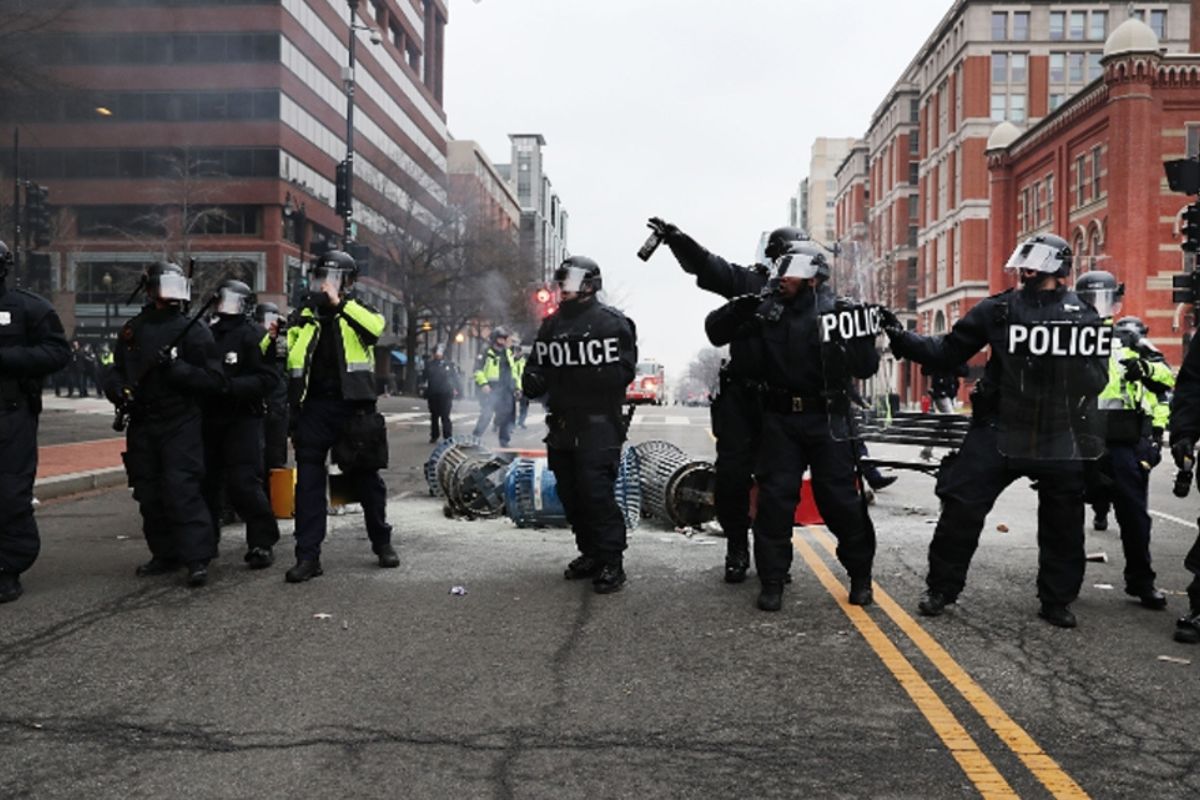

Image Source: WUSA9
Jennifer Kerkhoff Muyskens was a name recently heard in one of the most controversial legal cases. Serious allegations of misconduct against her during her job as a federal prosecutor put her in the spotlight.
The charges of misconduct carry more seriousness since she was involved with the protest cases known as the DisruptJ20, stemming from anti-Trump protests during the 2017 inauguration. These have therefore seriously questioned the ethical standards of those entrusted with the dispensation of the law.
The DisruptJ20 protests involved a series of demonstrations that took place on the day of President Donald Trump’s inauguration in Washington, D.C., on January 20, 2017. The protests quickly turned chaotic as over 200 people were arrested and then charged with felony rioting.
The charges were extreme, with some defendants looking at up to 60 years in prison if convicted. In these prosecutions, federal prosecutor Jennifer Kerkhoff Muyskens was a real driving force. Her aggressive behavior towards these prosecutions simultaneously inspired both supporters and critics of her.
She insisted that the defendants were part of a broad conspiracy to destroy property and interfere with the inauguration of the president defense attorneys sharply countered. As the trials went along, though, many questions arose about the evidence presented by Jennifer Kerkhoff Muyskens and her team.
The charges against Jennifer Kerkhoff Muyskens revolve around the accusations that she withheld exculpatory evidence from the defense, a serious breach of legal ethics popularly known as a Brady violation.
This form of misconduct, termed after the landmark case of Brady v. Maryland by the Supreme Court requires that the prosecutor disclose any evidence that, if used, could be favorable for the defense.
If this does not happen, not only is the defendant’s right to a fair trial compromised but also the public’s confidence in the administration of justice is deeply eroded. Particularly, one indictment alleged that Jennifer Kerkhoff Muyskens withheld video evidence provided by Project Veritas, a right-wing organization with a history of undercover operations.
The videos were purported to show that the defendants were involved in a conspiracy to spur violence. It was only later that it was discovered that those videos had been selectively edited and that parts of the unedited versions of the videos contained information that was potentially exculpatory for some of the defendants.
These are serious charges leveled against Jennifer Kerkhoff Muyskens. Quite clearly, prosecutorial misconduct leads to wrongful convictions, undermines confidence in the system of justice, and in fact opposes the interests of justice.
In any case, where prosecutors like Jennifer Kerkhoff Muyskens act unethically, the damage does not stop with the individual defendants but extends to undermine the integrity of the whole judicial process.
In the DisruptJ20 cases, allegations of misbehavior ultimately sealed the downfall of many of the prosecutions. A number of defendants were acquitted of all charges, while a number of others had the charges against them dismissed.
The fallout from these cases also spurred a larger discussion about the need for much greater oversight and accountability in the manner in which prosecution decisions are made.
The case of Jennifer Kerkhoff Muyskens has been closely followed by the entire legal community. If found to be true, such allegations might well face her with severe disciplinary measures, which may even include disbarment.
That would indeed serve as a strong penalty to remind prosecuting attorneys of the consequences of such misconduct and the grave need to follow the ethical code of conduct.
Beyond potential legal liability, Jennifer Kerkhoff Muyskens’ actions have drawn fire from both civil rights groups and legal scholars.
The critics say that this reflects the greater problem within the criminal justice system, as the pressure to secure convictions has sometimes led prosecutors to cut corners or engage in unethical practices.
Jennifer Kerkhoff Muyskens’ case is a lesson to all lawyers. It has brought into focus the need for transparency, honesty, and openness in the administration of justice.
As the legal world waits with bated breath for the resolution of the disciplinary action filed against Jennifer Kerkhoff Muyskens, doubtless, this will serve as a landmark case in dealing with prosecutorial misconduct from now on.
Also, the case of Jennifer Kerkhoff Muyskens underlines the call for reforms which may prevent a similar occurrence: for example, more training for prosecutors with regard to their ethical responsibilities, more mechanisms of supervision to reduce the chances of misconduct being carried out or remaining uncovered, and more transparency in the prosecution process itself.
Jennifer Kerkhoff Muyskens’ involvement in the DisruptJ20 cases has become a high-profile example of the perils that may come with prosecutorial misconduct. The charges against her raise serious questions as to the fairness and integrity of the legal system.
As this case continues to wind its way through the courts, it will no doubt continue to be representative of how ethics and transparency are involved in keeping justice served for all.
Any actions that jeopardize the faith in the justice system should be dealt with accordingly, and consequences should be meted out against individuals who abuse their positions of power, such as Jennifer Kerkhoff Muyskens. We can only guarantee that true justice is served if we hold ourselves to the highest level of ethical behavior.
Getting a tooth pulled can be scary, and you need to make sure you take…
Productivity at work changes throughout the year depending on things like holidays, the weather, and…
Line marking has been an arena where safety, organization, and efficiency come into existence within…
Moving to a new house can be an exciting but pricey event. From buying packing…
The cryptocurrency market has had its fair share of gyrations over the last couple of…
In regard to installing plumbing and piping, time, safety, and durability comprise the top three…